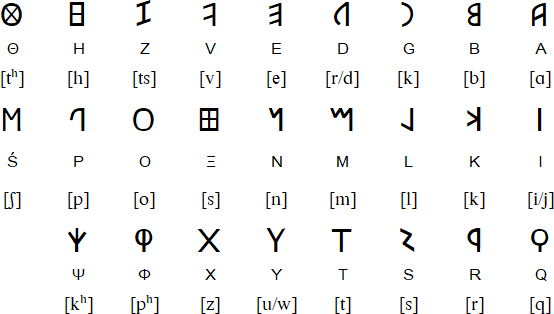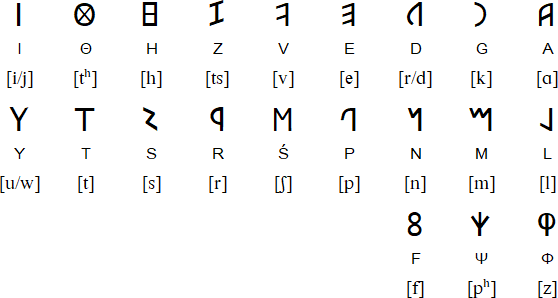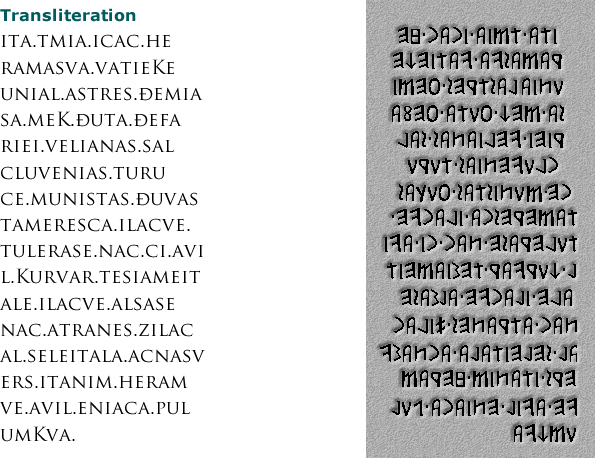I don't think that the similarities between the Celtiberian and Germanic scripts are coincidental- the idea that both had input from elsewhere makes the most sense to me:
Etruscan alphabet
The Etruscan alphabet developed from a Western variety of the Greek alphabet brought to Italy by Euboean Greeks. The earliest known inscription dates from the middle of the 6th century BC. Most Etruscan inscriptions are written in horizontal lines from rigth to left, but some are boustrophedon (running alternately left to right then right to left).
More than 10,000 Etruscan inscriptions have been found on tombstones, vases, statues, mirrors and jewellery. Fragments of an Etruscan book made of linen have also been found. Etruscan texts can be read: i.e. the pronunciation of the letters is known, though scholars are not sure what all the words mean.
No major literary works in Etruscan have survived, however there is evidence for the existence of religious and historical literature and drama. It is also possible that the Etruscans had a notation system for music.
The Etruscan language was spoken by the Etruscans in Etruria (Tuscany and Umbria) until about the 1st century AD, after which it continued to be studied by priests and scholars. The emperor Claudius (10 BC - 54 AD) wrote a history of the Etruscans in 20 volumes, none of which have survived, based on sources still preserved in his day. The language was used in religious ceremonies until the early 5th century.
Etruscan was related to Raetic, a language once spoken in the Alps, and also to Lemnian, once spoken on the island of Lemnos. It was also possibly related to Camunic, a language once spoken in the northwest of Italy.
Archaic Etruscan alphabet (7th-5th centuries BC)
Neo-Etruscan alphabet (4th-3rd centuries BC)
Sample text in Etruscan
Ancient Latin alphabet
The earliest known inscriptions in the Latin alphabet date from the 6th century BC. It was adapted from the Etruscan alphabet during the 7th century BC. The letters Y and Z were taken from the Greek alphabet to write Greek loan words. Other letters were added from time to time as the Latin alphabet was adapted for other languages and many letters had several different shapes.

Ancient and modern Latin alphabet


 LinkBack URL
LinkBack URL About LinkBacks
About LinkBacks




 Citar
Citar
Marcadores